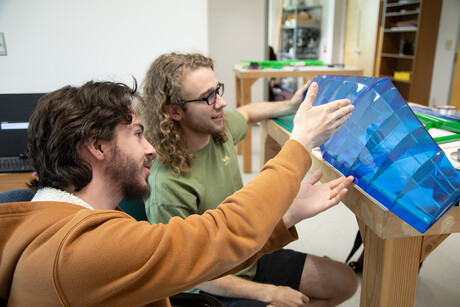In my childhood, the drive-through was still a mystery, and the Golden Arches hadn't yet wrapped their arms around every neighborhood. "Grandmother's Pies" and "Mother's Bakery" really meant your grandmother and your mother were in the kitchen up to their necks in flour dough, and most families tended gardens. Your garden began when the Gurney's seed catalog arrived in the mailbox.
At the end of each winter, my father tilled our 5-acre hill into a proverbial smorgasbord. Then at the first sign of spring, my brother and I watched tiny sprouts poke their heads up above rich dirt. In mid-summer my parents began taking the project plant by plant into the kitchen and we'd eat sun-ripened tomatoes until the juice ran down our chins and suck berry juice straight from the bushes.
Nearly a month ago my children and I were driving down the Columbia Gorge. They wanted McQuick pies. So we stopped and exchanged pocket change for six hot pies. Not more than 10 minutes later, I looked back. Shockingly, the pies lay among sappy happy bags, barely nibbled. I reflected: Nothing in mother's garden ever went to waste. It seems my boys have yet to understand pies are grown.
In the microwave age, (where even our lawns are rolled out) our fast-food society seems only to have given us more calories with less in them. Our "four-minute marriage mentality," has given us bigger but emptier homes. Our "prime-time-parenting" has entrenched our children with vast action figures yet left them strangers to Bible characters. While institutions drop knowledge faster and faster—our schools fail at greater speeds. At best, Americans are running on empty, over-drawn and over-spent, but more rapidly. But how can we blame a generation that was fundamentally taught everything could be supersized for only 20 cents?
Perhaps what we need in this country is less drive-throughs and just a few more gardens. Maybe we need fewer factories named "grandma," "aunt," and "mother" and some real-life aunts and grandmas in our kitchens. Maybe we need slower cars, slower foods and slower religions. Maybe we need less silk-hand products and more proudly earned calluses, more teenagers tending gardens instead of more time tending teenagers.
If fathers and mothers cultivated gardens together would they cultivate better marriages? If families sat on garden swings each night counting real stars instead of television stars, how would this look? If neighbors shared common gardens, would there be more community? What if we had fewer Happy Meals and more truly HAPPIER meals?
Perhaps we have bought into the plastic-fork-drive-through myth—that everything comes fast, cheap and easy. We need to embrace the golden-spoon-garden realism that our grandmothers and anyone tending even one plant knew—real pies take hard work.
I believe God placed Adam and Eve in the garden instead of a drive-through for a plethora of reasons, but mostly to remind us: ministries are not ordered—they are tended.
In our plastic-fork world, we're tempted to want drive-through results even in ministry, baptizing and reaping at side-order speed. Yet ministries, the grass-roots of church growth, take planning and pruning.
I think Jesus was talking about women's ministries when He said, "All wish to sit at the table [drive-through] but few want to go into the field [garden]."
And so I've decided, the next pie my boys eat is the one they bake!
This GLEANER highlights Northwest women out tending "gardens" with their sleeves rolled up. Join our garden club; pick up your trowel...
I am excited to be hosting a GLEANER blog. Check it out by going to "Gleaner Online." When you are on "Gleaner Online", click on "Gleaner Blog," at this point click "Gleaner Blog" twice and then "New Gleaner Blog" you will see the GLEANER masthead and have a choice between our two categories "General" or "Cindy's GLEANER Garden."









